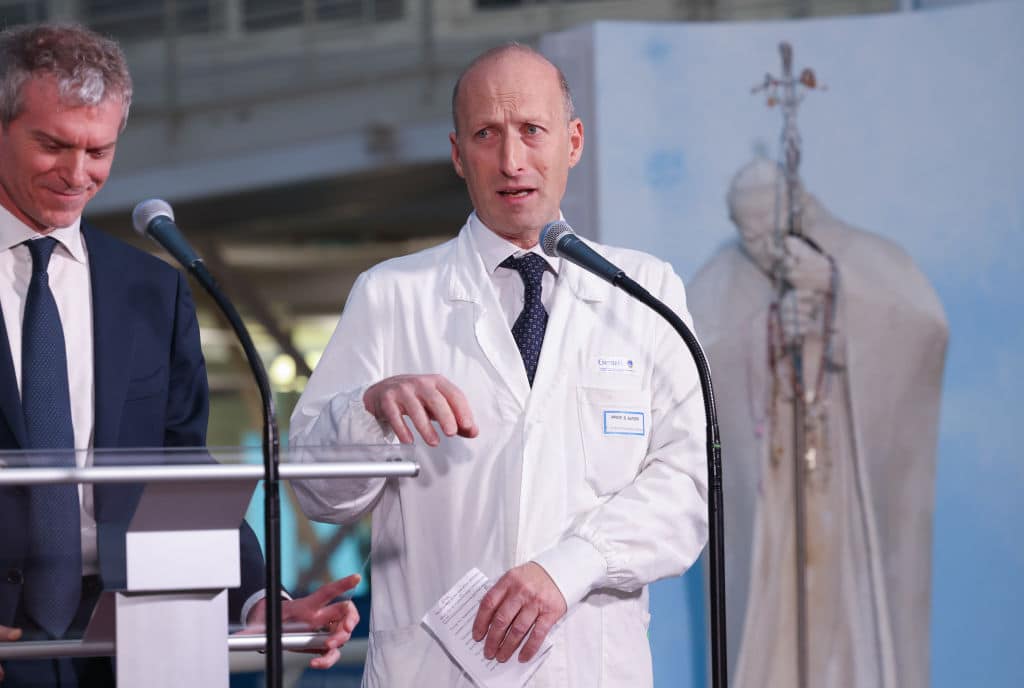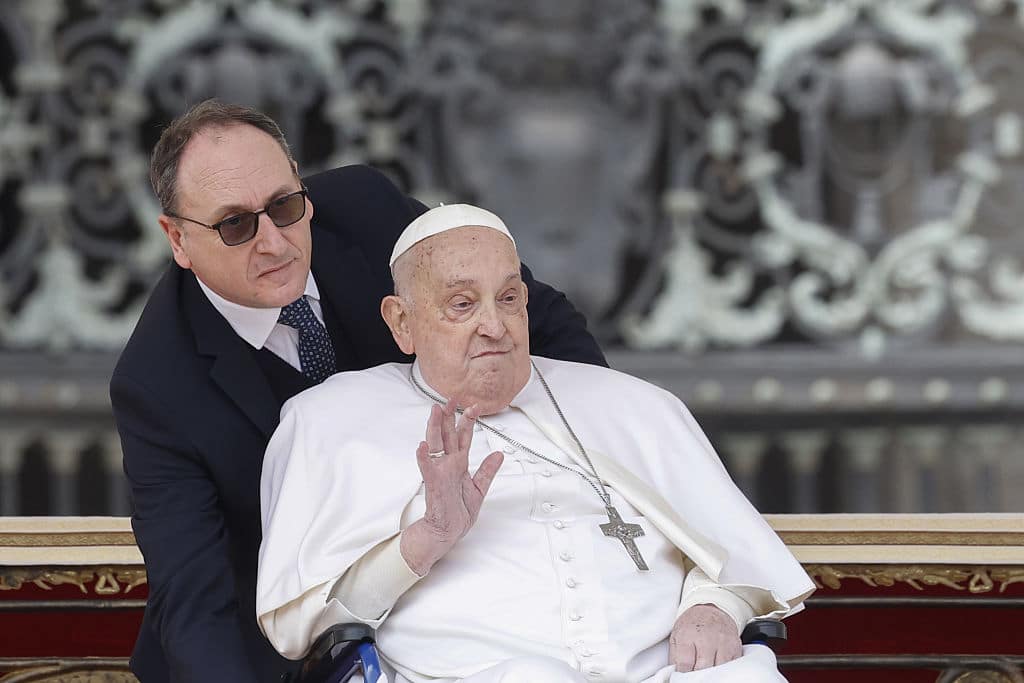While millions around the world continue to mourn the passing of Pope Francis, a powerful voice has emerged from the quiet grief—his personal physician. The man who stood by the Pope during his final hours has now revealed what truly happened in those sacred moments.
Dr. Sergio Alfieri, the Pope’s longtime physician and the head of the team that treated him during his final hospitalization for double pneumonia, has confirmed that the end came swiftly and without warning. In an interview with Corriere della Sera, Alfieri recounted being urgently summoned to the Vatican at 5:30 a.m. on Easter Monday. Twenty minutes later, he arrived at the Pope’s residence to witness a scene he says will stay with him forever.
“I entered his rooms and he had his eyes open,” Alfieri recalled. Initially, there were no obvious signs of distress. “I ascertained that there were no respiratory problems. And then I tried to call his name, but he did not respond to me.” The situation quickly grew critical. “He didn’t respond to stimuli, not even painful ones. In that moment, I knew there was nothing more to do. He was in a coma.”
Alfieri believes that a sudden and devastating stroke was the cause of death—one so severe that it left no time for intervention. “One of those strokes that, in an hour, carries you away,” he explained.

As Pope Francis now lies in state inside St. Peter’s Basilica, with thousands of mourners passing by his open casket ahead of Saturday’s funeral, Dr. Alfieri is offering a deeper understanding of why nothing more could have been done. Speaking to La Repubblica, he revealed that some Vatican officials initially discussed rushing the Pope back to the hospital, but that idea was quickly dismissed. “He would have died on the way,” Alfieri stated simply. Even if they had managed to get him there in time for diagnostic tests, Alfieri insisted the outcome would have remained unchanged.
Although doctors had advised rest after a long hospital stay, Pope Francis, at 88 years old, remained active until the very end. Just days before his death, he even held a private meeting with U.S. Senator JD Vance, a detail that left many wondering whether he had truly heeded medical advice. Alfieri, however, said that Francis had been careful. Speaking again to Corriere della Sera, he noted that the Pope’s return to work was a deliberate part of his recovery. “Going back to work was part of the treatment and he never exposed himself to any danger,” Alfieri said.
The last time Alfieri saw Pope Francis was on Saturday, just two days before his death. He had brought the Pope a pie, one of his favorite treats, and found him in good spirits. “I am very well, I have started working again, and I like it,” the Pope told him. Alfieri said there was no doubt Francis intended to serve as Pope until his final breath. “We knew that he wanted to go home to be Pope up until the last moment. He didn’t let us down.”

Yet behind the Pope’s familiar smile and warm demeanor was one lingering sorrow. Alfieri revealed in his conversation with La Repubblica that Pope Francis had expressed regret over missing one of his most beloved Holy Week traditions: the washing of prisoners’ feet. Scheduled to visit a Rome jail on April 17, Francis had been unable to go. “He regretted he could not wash the feet of the prisoners,” Alfieri shared. “This time I couldn’t do it — was the last thing he said to me.”
In the end, the Pope’s passing was much like the way he had lived: humble, human, and profoundly moving.





